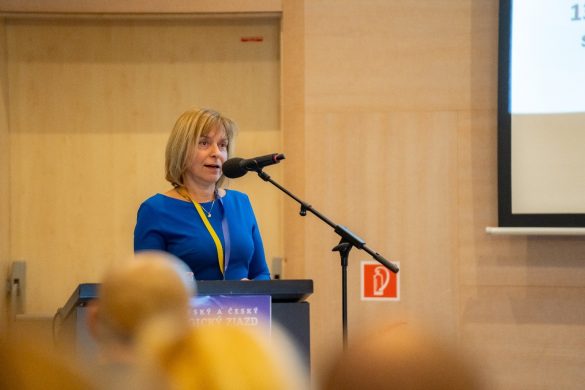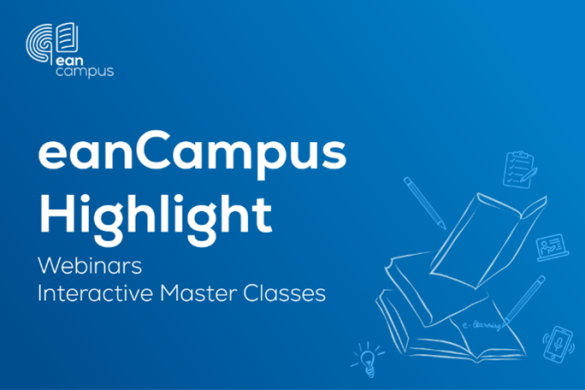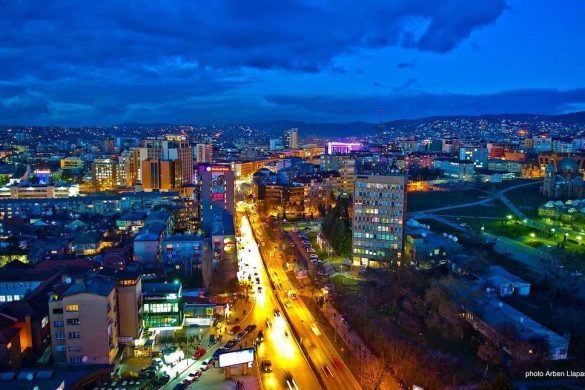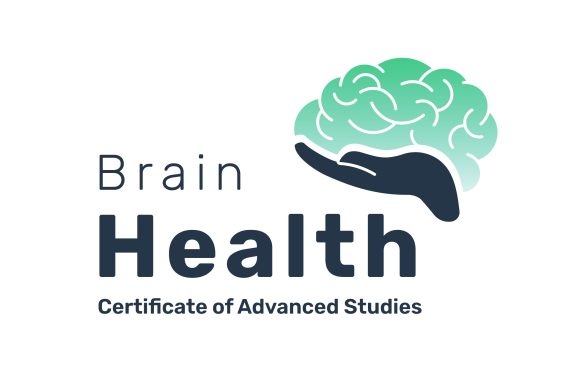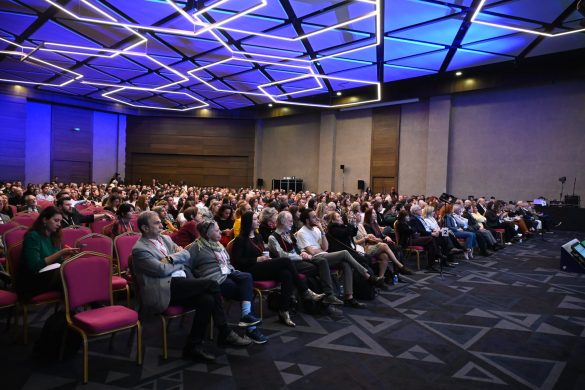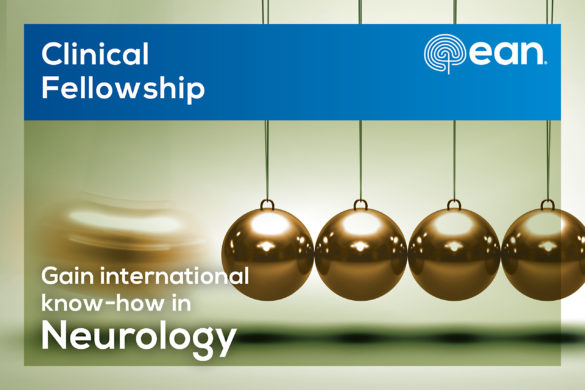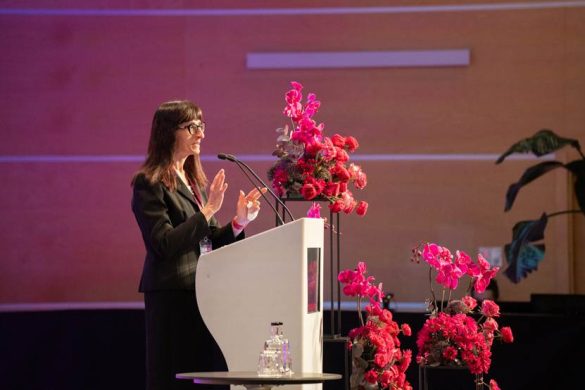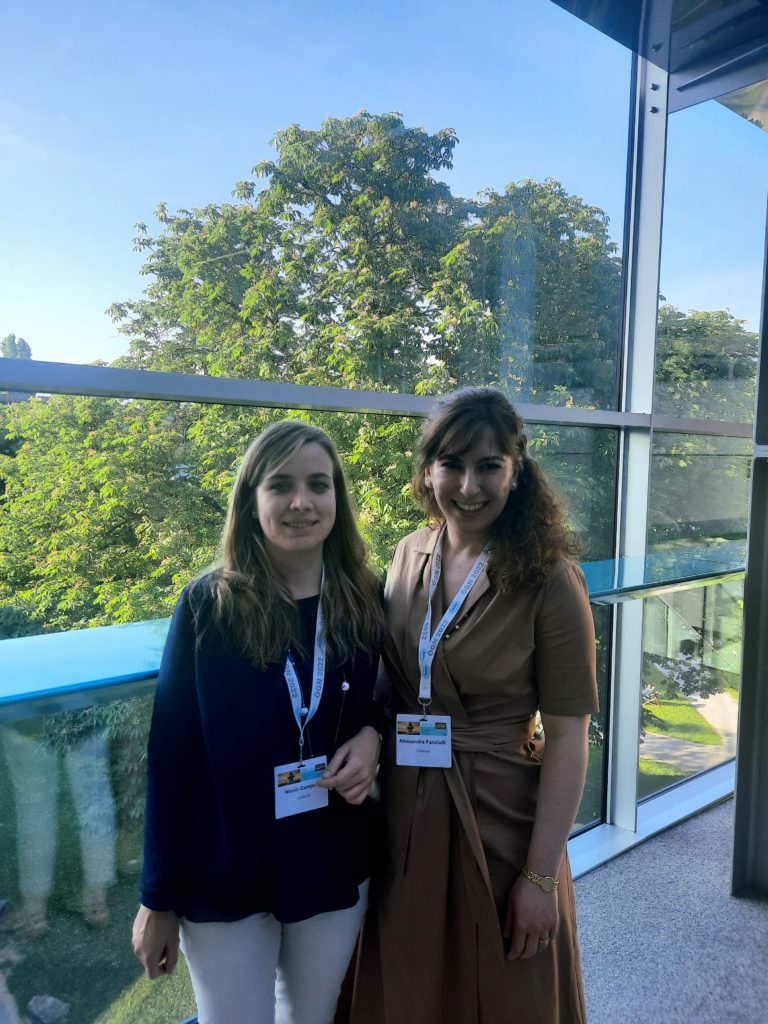
Nicole Campese, Pisa, Italy
Term of Fellowship: 21 February – 30 April, 2022
Hosting department: Dysautonomia Center, Department of Neurology, Medical University of Innsbruck, Austria
Supervisor: Dr Alessandra Fanciulli
I had the opportunity to attend the Dysautonomia Center of the Department of Neurology of the Medical University of Innsbruck under the supervision of Dr. Alessandra Fanciulli in the frame of a ten-week EAN Clinical Fellowship.
The Neurology Department of the Medical University of Innsbruck, led by Prof. S. Kiechl, is a third-level reference centre for the diagnosis and management of movement disorders, where a specialised autonomic unit provides advanced care for patients with autonomic complaints, with a special focus on autonomic features of Parkinson’s disease and atypical parkinsonism.
During my fellowship I had the opportunity to take part in the activities of both the autonomic function lab and of the neurovegetative and Parkinson’s outpatients’ clinics. I had the chance to learn how to perform a bedside autonomic assessment and how to select patients to be referred to second-level examinations. In the autonomic function lab, I learned how to perform and interpret cardiovascular autonomic function tests, in particular tilt-table examinations, Ewing tests and 24-hour-ambulatory blood pressure monitoring and acquired some basic skills in the quantitative assessment of sweating disorders by means of quantitative sudomotor axon reflex tests (QSART). Attending the neurovegetative outpatients’ clinic I further deepened these skills and acquired some basic knowledge regarding the pharmacological and non-pharmacological management of autonomic complaints, especially in patients with Parkinson’s disease and atypical parkinsonism. I further learned the potential role of autonomic function assessment in the differential diagnosis of Parkinson’s disease and atypical parkinsonism and got involved in some research activities focused on autonomic features in parkinsonian disorders.
Overall, the fellowship was a unique chance to learn some precious skills on often overlooked and underrecognised features of neurological disorders like autonomic complaints. This experience further gave me the chance to get in touch with one of the most important groups dealing with dysautonomia in movement disorders.
Finally, I would like to thank the EAN for the financial and logistical support that made this fellowship possible. A special thank you goes to Dr. Fanciulli for her thoughtful supervision and mentoring and to the whole staff of the dysautonomia centre, led by Prof. Wenning, and of the Parkinson’s outpatients’ clinic, led by Prof. Seppi, for kindly hosting me during these ten weeks.
…
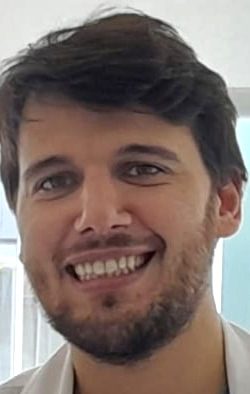
Renato Oliveira, Lisbon, Portugal
Term of Fellowship: 1 April – 30 June, 2022
Hosting department: Department of Neurology, Atkinson Morley Wing, St George’s Hospital, London, United Kingdom
Supervisor: Dr Camilla Blain
Doing an EAN Clinical Fellowship is a unique and exceptional opportunity. On the one hand some work-related aspects are very similar to my origin country, while on the other hand several aspects of clinical and scientific activity are considerably different. Additionally, social, and cultural differences contribute to further enrich the experience of living abroad. As a neurology trainee with special interest in multiple sclerosis (MS) and neuroinflammation I had high expectations to see how things were organised in another country and to bring home new ways to improve my own clinical practice.
I had the pleasure of doing this fellowship at St George’s Hospital, a regional tertiary centre serving the population of South-West London, Surrey, and Sussex. The department of neurosciences, and neurology, works closely with St George’s University of London in the delivery of specialist teaching, education, and research. This fellowship was essentially observational (observership) and focused mainly on the outpatient care based on the neuroinflammation rotation – one of the programmed rotations for neurology registrars. The timetable was initially discussed with Dr Camilla Blain, my fellowship supervisor. This timetable included MS and neuro-ophthalmology clinics, and MS and neuro-ophthalmology multidisciplinary team meetings (MDTs). Other clinics with potentially neuroinflammatory conditions were also considered, specifically neuro-oncology clinics to contact with drug-associated demyelinating neurological events. Additionally, I attended the inpatient neurology ward once a week, where I observed several neuroinflammatory cases. Moreover, I had the opportunity to see how things were organised in a district hospital (Croydon University Hospital) where I attended both neurology and MS clinics for a week.
As in the UK, Portugal has a public health system (SNS – Serviço Nacional de Saúde). However, there are significant differences between the NHS and SNS. In particular, the NHS has a wider range of medical and health careers, and some specific roles do not exist in Portugal such as physician associate. Another difference that stood out for me is related to an administrative aspect, the clinical letters that are written for each clinical setting and that carry a legal component. In Portugal we only keep medical records of outpatient and inpatient care and do discharge notes, but do not have a specific way of correspondence for both the patient and the GP or other health professionals. While I do not think it is a perfect system (there can be some delay delivering the letters, and sometimes that delays the initiation of certain treatments), it is a major advance in communication between the health professional and the patient and among professionals.
From a more descriptive analysis I was able to observe a total of 200 neuroinflammation consults, of which 57 were first appointments. I mostly attended Dr Camilla Blain and Dr Waqar Rashid clinics, but also attended the clinics of other MS consultants (Dr Khaled Abdel-Aziz and Dr Lara Sanvito). Of the 200 patients, 72% were female and the average age was 45.4±12.5 (18-75). The most frequent diagnosis was multiple sclerosis (N=165, 82.5%) – relapsing form (N=130, 65%), secondary progressive form (N=24, 12% and primary progressive form (N=11, 5.5%). Other diagnosis included clinical isolated syndrome, radiological isolated syndrome, autoimmune encephalitis, neuromyelitis optica spectrum disorder (NMOSD), Neuro-Behçet syndrome and neurosarcoidosis. Of the MS patients, 61.6% were under disease modified treatment (DMT), most of them under highly efficacy drug treatment (N=79, 41.6%), and 20% under more secure first line DMT. A significant percentage (N=73, 38.4%) were not under any DMT, which included a high number of patients in a DMT initiation protocol; patients with advanced forms of the disease (primary and secondary progressive forms) who have either suspended DMT or never started DMT; women of gestational age who are planning pregnancy or are pregnant; and a non-negligible number of patients with relapsing-remitting form who chose not to start DMT (4%). I had the opportunity to see particularly interesting cases, for example: one case of Baló concentric sclerosis; one case of severe NMOSD with involvement of the brainstem and respiratory distress; and one case of tumefactive MS with persistent hemianopia.
I had previous experience in the field of MS as I did an MS fellowship at a Portuguese hospital during the previous year. Thus, the comparative analysis seems inevitable. While there are many similarities, there are clear differences between the two. The two samples are similar in general sociodemographic characteristics, and in the distribution of MS forms. However, there are considerable differences regarding DMT. While at St. George’s the majority of DMT patients are receiving high-efficacy treatment (41% vs 20% low risk DMT); in Portugal only 27% of DMT patients received high-efficacy treatment (vs 43.3% low risk DMT). These differences can be explained, at least in part, by the fact that St George’s hospital receives patients from hospitals that offer first-line treatments but not highly effective ones; greater logistical ease in initiating high-efficacy therapies as long as they comply with national guidelines; more frequent use of some highly effective drugs (ocrelizumab; ofatumumab) in the first relapse or clinical presentation; and the use of some highly effective treatments that are rarely used in Portugal such as hematopoietic stem cell transplantation. On the other hand, in London there is a significant number of patients who, after diagnosis, choose not to start a DMT; a relatively higher number than I saw during the internship in Portugal, which could perhaps be partially explained by social/cultural differences. One additional major difference between the two centres is the much higher number of nurse specialists in general and MS nurse specialists in London. These professionals complement the role of the attending consultants and are crucial to the care of people living with MS. The one aspect that I found to be better in Portugal is the waiting time for specialty clinics related to MS care (e.g. urology, neuro-ophthalmology).
I would like to highlight the weekly MS MDT meetings. These meetings are aimed at multiple sclerosis medical teams not only at St George’s but also from the main district hospitals in South-West London. In addition to multiple sclerosis specialists, other professionals participate, specifically a neuroradiologist with a particular focus on neuroinflammatory diseases, and registrars who are on neuroinflamation rotation. All MS cases that are due to initiate a highly effective DMT are discussed, since this has to be approved by all the team members. It is also possible to discuss diagnostic queries, whether clinical or radiological, as well as discuss organisational aspects.
During my stay I collaborated on a project related to the regional MS transformation programme. This project aims to assess the status of MS services in this area of London to audit the implementation of DMT protocols and multicentric collaboration across the region. This is an ongoing project. Results will be presented in a team meeting later.
Living for three months in the UK was undoubtedly a great experience. People, inside and outside of London, were supportive and friendly during my stay. Other positive aspects included the cultural offer, the diversity and, against all odds, the weather, which was exceptionally nice. This fellowship has benefited me tremendously. With no exception, all the professionals that I had contact with during my fellowship are an example of inclusion and welcoming. I would like to personally thank Dr Waqar Rashid, Dr Niranjanan Nirmalananthan, Dr Arani Nitkunan, and my supervisor Dr Camilla Blain.
Finally, I would like to share my appreciation for all the support and professionalism of the EAN team.




